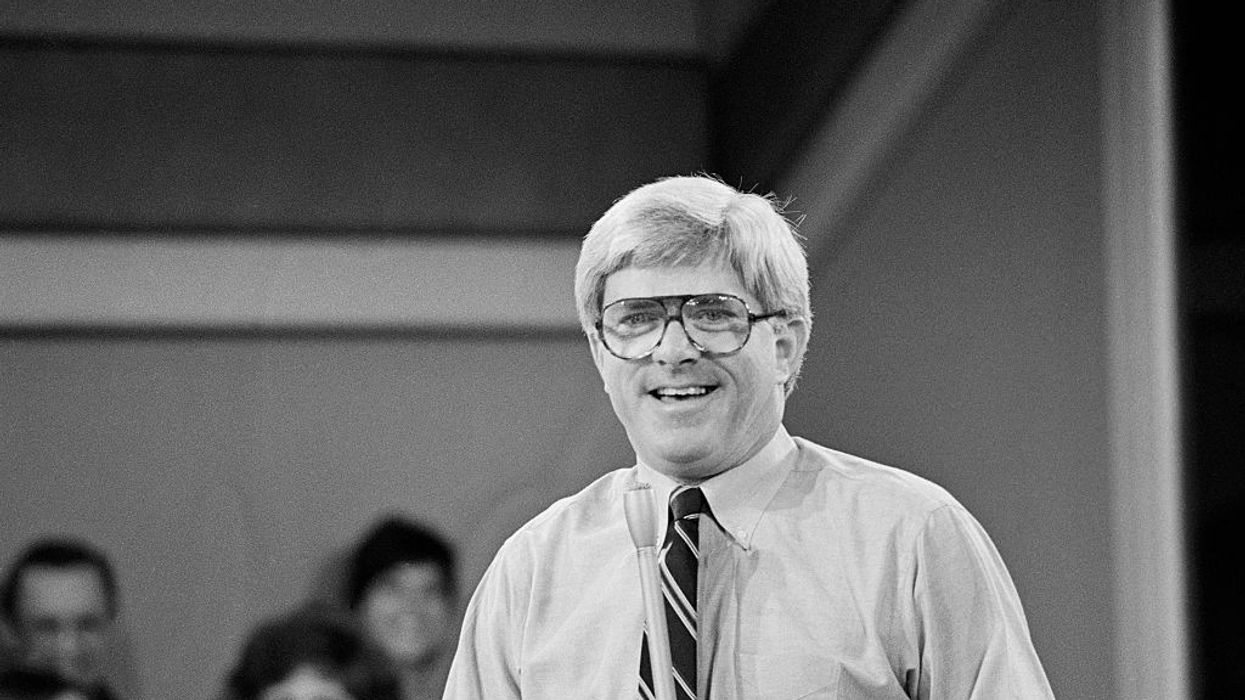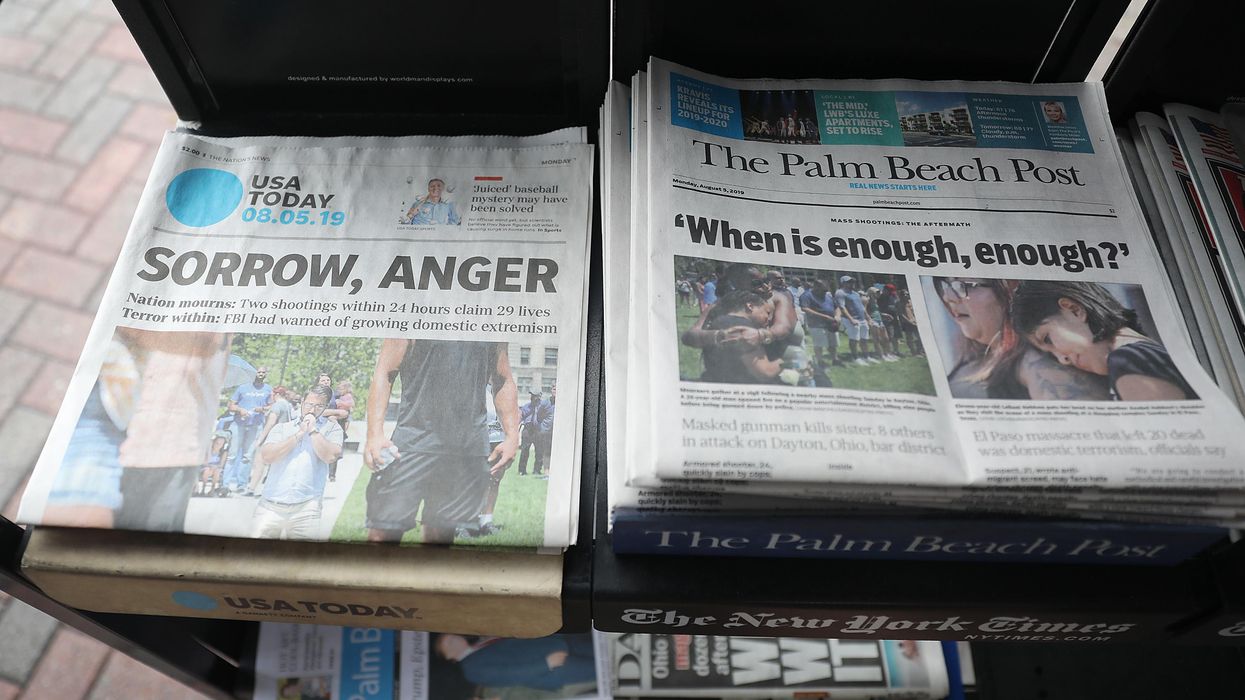The pioneering opinion pieces Swope published were written by newspaper staff; and, while he may have ignored some facts in the opinions he published, contemporary newspapers claim to aspire to journalistic integrity. In its op-ed guidelines, The Washington Post, for example, notes that all op-eds are fact-checked. Post guidelines explain that authors with “important titles,” like “senators, business leaders, heads of state,” are held “to a particularly high standard when considering whether to publish them in the Post.”
Too often, however, the aims of consolidated, corporatized media, owned and operated by megarich individuals, supersede Fourth Estate journalistic ethics and democratic duties.
As competition for the public’s attention stiffens in a social media and online communications-saturated environment, it’s perhaps not surprising that conflicts of interest arise in the op-ed pages. In 2011, more than 50 journalists and academics urged greater transparency about conflicts of interest among New York Times op-ed page contributors. In an October 6, 2011 letter to Arthur Brisbane, the Times’s public editor, they criticized the practice of “special interests surreptitiously funding ‘experts’ to push industry talking points in the nation’s major media outlets,” absent reporting of those writers’ vested interests.
In their letter to the Times, the signatories called out the unreported bias of Manhattan Institute senior fellow Robert Bryce. The Institute received millions of dollars in funding from the fossil fuel industry. Bryce’s promotion of fossil fuels rather than renewable energy, they wrote, flew in the face of his “masquerading as an unbiased expert.”
Corporate media consolidation has strategically limited the diversity of perspectives and the quality of journalism and unduly influenced audience opinion. With a handful of large corporations controlling a majority of media outlets, content homogenization and profit prioritization often replace journalistic integrity. For instance, the acquisition of hundreds of weekly and daily newspapers by conglomerates like Gannett has led to a reduction in independent voices, an increase in editorial uniformity, biased editorials and op-eds, and news deserts.
The Sinclair Broadcast Group’s ownership of approximately 200 television stations has been criticized for mandating the airing of politically slanted content, including editorials and op-eds, across its network. This centralized control over broadcasting allows for the dissemination of partisan perspectives, undermining public access to balanced, impartial news coverage. Instead, viewers are fed one-sided opinions aligned with corporate agendas, rather than presented with a diverse array of viewpoints.
Editorials and op-eds can and often do have a greater influence on public consciousness than news articles. In best-case scenarios, they express a broad spectrum of opinions, provide in-depth analysis, advocate for specific viewpoints, and connect with audiences through emotion and ethos. Publications adhering to journalistic ethics feature opinions written in the public’s best interest and offer a range of well-reasoned perspectives that enhance good-faith debate.
Because the importance of an issue is often equated with the type and amount of media coverage it gets, high-profile publishers bear a greater responsibility in curating opinion pieces. When premier newspapers publish op-eds that are irresponsibly written—whether echoing government propaganda and political biases or corporate interests, lacking fundamental facts or historical context, or wielding accusatory or derogatory language and sensationalized headlines—they “signal boost” for a particular viewpoint or agenda.
This type of writing is irresponsible and counter-democratic for several reasons. Many news consumers skim headlines, only reading articles with gripping titles and subtitles. Reckless opining is equally irresponsible because many Americans have difficulty distinguishing fact from opinion. News consumers do not always make the necessary distinction between what’s published in the “news” section versus “opinion,” according to Marist College journalism professor Kevin M. Lerner.
When established reporters and purported experts voice their views as authoritative, their opinions are often perceived as news rather than opinion. Readers give them greater weight because of their credentials. Editors thus bear a greater responsibility to ensure that their opinion pieces adhere to the highest standards of journalistic ethics. Failure to do so can amount to a form of reader manipulation. Such lapses not only compromise journalistic credibility but do a disservice to the public and the democratic process.
Daniel Macy, senior associate in the Office of the Public Editor at PBS, wrote a defense of news editorial decisions. Too often, he complained, news audiences incorrectly believe that the media shape the news agenda. Macy claimed that the news media merely mirror the agenda. If audiences believe there’s bias, he continued, that’s due to the ever-present prioritizing system that each news consumer keeps in their head. At the end of the day, he affirmed, the editor decides what makes the news. “That sounds a little bit agenda-setting, but it’s not.”
Macy’s denial notwithstanding, establishment media has an agenda-setting function, and editorial decisions factor into the formation of public opinion and individuals’ voting decisions. Although the media cannot necessarily tell audiences what to think, they certainly have the power to inform what and who audiences think about. Take the 2024 report by Fairness and Accuracy in Reporting (FAIR) that investigated biased articles on economic topics, such as inflation, recession, and government debt and spending.
Searches of the 2023 New York Times and Washington Post archives revealed excessive prognosticating about a recession that never materialized and simultaneously correlated this to companies’ unjustifiably inflating prices. This sort of signal-boosting whipped up “fears of recession, a fantasy problem,” and directed attention away from the facts. In March 2024, writing on the strength of the U.S. economy, Louis Jacobson explored why so many Americans believe otherwise. The “self-reinforcing doom loops of media coverage and partisan biases” are at least partly, if not wholly, to blame, he wrote.
Opinion pieces that serve corporate or political agendas exemplify irresponsible editorializing. Editors owe a duty to the public to avoid hyperbolic opinion writing and “doom looping” that advance the interests of a privileged few. Too often, however, the aims of consolidated, corporatized media, owned and operated by megarich individuals, supersede Fourth Estate journalistic ethics and democratic duties. Manufacturing Consent (1988), the seminal work of Edward Herman and Noam Chomsky, shattered the illusion that the establishment media serve as a reliable check on power. Rather, media empires prop up the status quo and repeatedly display an unwillingness to challenge the power structures from which they profit.
Case in Point: Genocide Perpetrators Portrayed as Victims
A brief survey of opinion pieces related to 2023 headline news stories illustrates how unenforced editorial standards turned op-eds into forms of political propaganda. In the case of Israel’s genocidal acts against Palestinians in 2023 to 2024, editorials and op-eds in U.S. newspapers largely portrayed Israel as a victim, despite overwhelming evidence to support South Africa’s charge in the International Court of Justice that Israel is committing genocide in Gaza.
The Intercept published an analysis of media coverage during the first six weeks of the Israeli assault on Gaza, which helps to quantify the misuse of op-eds. The open-source inquiry into more than 1,000 articles revealed coverage that regularly favored the Israeli narrative. Consistent bias against Palestinians in The New York Times, Washington Post, and Los Angeles Times disproportionately described Israeli losses in emotional, humanizing language.
By contrast, Palestinian deaths were downplayed, as were the devastating impacts of the unprecedented bombing campaign in the Gaza Strip. The killing of journalists and children was similarly minimized. Harking back to Manufacturing Consent, Herman and Chomsky demonstrated the notion of “worthy and unworthy victims.” Victims of enemies of the United States and its client states are “worthy victims.” Correspondingly, in MintPress News (February 27, 2024) Alan Macleod wrote that deaths will only be covered extensively and compassionately in the establishment press if there’s political and economic capital to be gained.
Time and again, Western establishment news media showcase Israeli government and military officials and “authoritative voices” sympathetic to Israeli and U.S. policies to comment on the conflict.
The Intercept’s analysis detailed asymmetrical reporting on acts of antisemitism versus anti-Arab and anti-Muslim actions, and concluded that “[a]nalysis of both print media and cable news make[s] clear that, if any cohort of media consumers is getting a slanted picture, it’s those who get their news from established mass media in the U.S.”
In February 2024, Fairness and Accuracy in Reporting released the results of its analysis of opinion pieces in The New York Times and Washington Post that mentioned Israel or Gaza, as published from October 7 to December 6, 2023. FAIR determined that, although both papers included a few strong pro-Palestinian voices, opinions weighed heavily toward Israeli interests.
That was largely due to reliance on regular columnists sympathetic to Israel. Guest opinion editorials in both papers primarily featured the same old government officials (domestic and foreign, past and present) and attendant think tank experts uncritical of Israel.
To give an example of “op-ed abuse” that advantages U.S. pro-war policies, a study by the Quincy Institute found that the majority of think tank experts featured in the establishment press supportive of Ukraine were paid by the U.S. Department of Defense. Conflating national and international security issues with a feigned need for expert opinion is nothing new—newspapers of record have a track record of employing op-eds to justify war.
Caitlin Johnstone has written that “a jarring number of media executives and influential journalists” belong to the Council on Foreign Relations. The Washington Post’s former managing editor, Richard Harwood, reportedly commented that media involvement in the council aids the United States in formulating and promoting its policies and positions.
Indeed, who does the reporting and opining is as instrumental to a story as its subject and how a story is told, as media analyst Sana Saeed of Al-Jazeera+ has analyzed. Time and again, Western establishment news media showcase Israeli government and military officials and “authoritative voices” sympathetic to Israeli and U.S. policies to comment on the conflict. To state the obvious, stenography—that is, uncritically quoting think tank executives and government bureaucrats—is not journalism. Nor does it carry weight in constructive opinion writing unless, perhaps, it’s contextualized to validate an argument.
Modern Media’s Duty to the Public
Traditional media have long served as sources for citizens to learn about their political leaders, policies, and government. Citizens should be able to trust their nation’s premier newspapers to maintain professed standards of professional ethics and to offer a plurality of newsworthy viewpoints.
Biased reporting is a breach of journalistic ethics. The preamble to the Society for Professional Journalists’ Code of Ethics, widely considered the gold standard of ethical journalism, states the belief “that public enlightenment is the forerunner of justice and the foundation of democracy,” and appeals to the integrity of every journalist, beginning with guidelines for seeking and reporting truth. A breach of ethics interferes with the public’s right to, and need for, accurate information.
Biased and propagandized publications may be thought of as a human rights issue too. According to Article 19 of the United Nations Universal Declaration of Human Rights, “Everyone has the right to freedom of opinion and expression, which includes the freedom to hold opinions without interference, and to seek and receive… information… through any media regardless of frontiers.” Thinking in those terms, reporting that’s biased, lacks transparency, or presents decontextualized information impedes Article 19’s contention that information seekers have the right to obtain facts and bias-free information.
Even in the digital age, America’s legacy media bear a consequential responsibility to the public. At a time when democracy is under strain, opinion pieces in our premier newspapers run the risk of abusing their status to steer public debate against the public welfare—especially when written by influential individuals with vested conflicts of interest.
Considering the blurred lines between legacy media and social media and between news and opinion, editorial decisions do more than undermine the role and reputation of journalism in a democracy; they jeopardize democracy itself.


